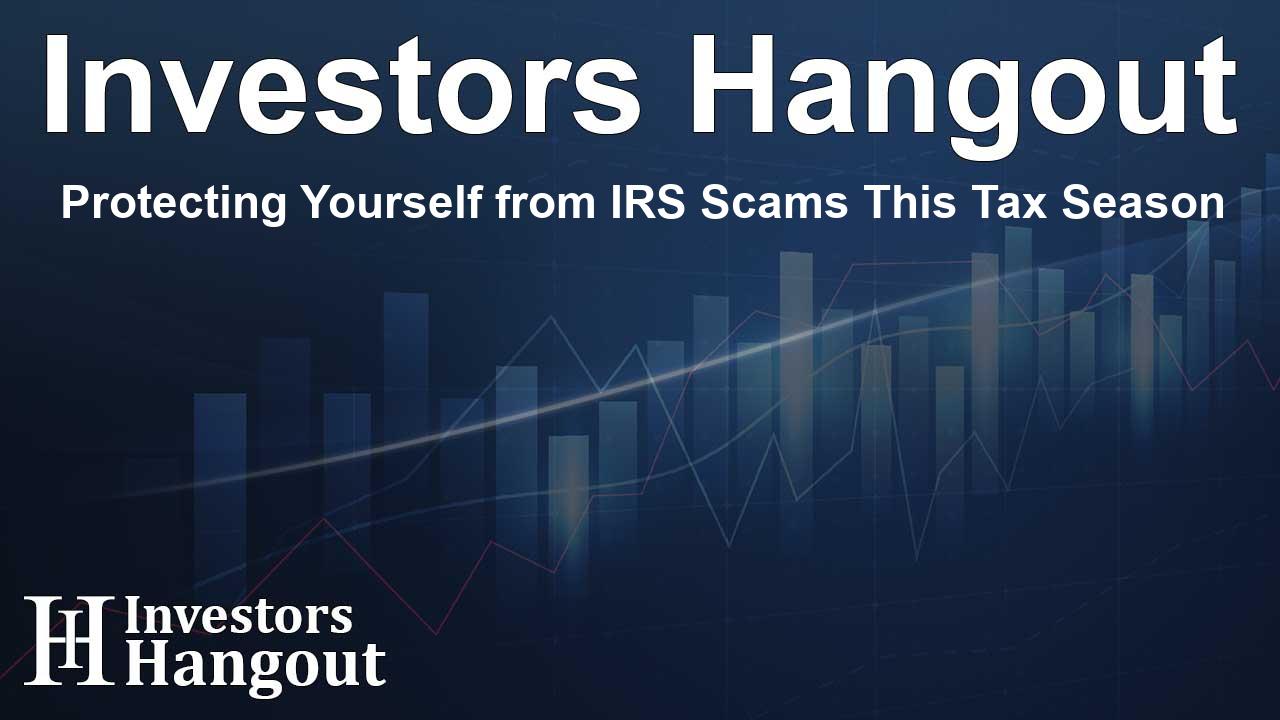Protecting Yourself from IRS Scams This Tax Season
As tax season draws closer, it's essential for individuals aged 50 and older to be aware of the growing number of scams where criminals impersonate IRS officials. These deceitful activities often prey on the vulnerabilities of citizens, aiming to exploit fear of tax obligations and uncertainty about financial matters.
Typically, IRS impersonation scams may initiate through a variety of channels such as phone calls, letters, or even in-person visits. Scammers often present false claims, stating that the target has pending taxes, is being investigated, or is entitled to a refund. Many victims unknowingly comply and provide sensitive information or make hurried payments using untraceable methods like gift cards or cryptocurrency.
Mary Bach, a dedicated volunteer with AARP Pennsylvania, highlights that “scammers are getting increasingly clever and aggressive in crafting their schemes. They manipulate people through fear and urgency, often leading them to act without verifying the authenticity of the communication. Understanding how the actual IRS engages with taxpayers is crucial for safeguarding yourself against these scams.”
In the previous year, reports indicated that scams impersonating government officials cost American citizens a staggering sum. The Federal Bureau of Investigation revealed that impersonation scams have seen an alarming rise. Most legitimate IRS communications are sent via traditional mail through the U.S. Postal Service, not by phone, text, or email. In-person visits by IRS agents have become rare and typically involve pre-scheduled appointments. AARP Pennsylvania advises vigilance in recognizing potential warning signs, such as unsolicited contact that pressures people for immediate payment or unusual payment requests.
AARP Associate State Director, David Kalinoski, emphasizes the importance of verification: “If you receive a dubious call or message claiming to be from the IRS, refrain from engaging. Instead, hang up or close the door, and contact the IRS directly to confirm any claims made.”
To protect yourself from these scams, consider the following guidelines:
- Always disregard unsolicited communications from the IRS.
- Never divulge personal or financial information over the phone or via email.
- Report any suspicious communication promptly.
- Utilize the official IRS website to confirm any notices received and review payment options.
If you suspect you've encountered a scam, reporting it to local law enforcement is crucial. For additional assistance, individuals can reach out to AARP through their contact lines.
About AARP
AARP stands as the largest nonprofit, nonpartisan organization dedicated to empowering individuals who are 50 years and older. With approximately 38 million members nationwide, AARP plays a vital role in advocating for the needs and interests of its members while also fostering community engagement. The organization publishes widely circulated materials, including AARP The Magazine and AARP Bulletin, aimed at keeping members informed about pertinent issues affecting their lives. For further information, feel free to explore AARP’s resources online.
Frequently Asked Questions
What is an IRS impersonation scam?
An IRS impersonation scam occurs when criminals pose as IRS agents to deceive individuals into providing personal or financial information under false pretenses.
How can I recognize an IRS scam?
Common red flags include unexpected communications that insist on immediate payment, threats of arrest, or unusual payment methods such as gift cards.
What should I do if I receive a suspicious IRS communication?
Do not engage with the caller. Hang up and verify the claim by contacting the IRS directly through official channels.
Is the IRS known for making phone calls?
Typically, the IRS initiates contact via mail using the U.S. Postal Service, not phone calls, text messages, or emails.
How can I report scams?
You should report suspected scams to local law enforcement and can also seek assistance from organizations like AARP.
About The Author
Contact Riley Hayes privately here. Or send an email with ATTN: Riley Hayes as the subject to contact@investorshangout.com.
About Investors Hangout
Investors Hangout is a leading online stock forum for financial discussion and learning, offering a wide range of free tools and resources. It draws in traders of all levels, who exchange market knowledge, investigate trading tactics, and keep an eye on industry developments in real time. Featuring financial articles, stock message boards, quotes, charts, company profiles, and live news updates. Through cooperative learning and a wealth of informational resources, it helps users from novices creating their first portfolios to experts honing their techniques. Join Investors Hangout today: https://investorshangout.com/
The content of this article is based on factual, publicly available information and does not represent legal, financial, or investment advice. Investors Hangout does not offer financial advice, and the author is not a licensed financial advisor. Consult a qualified advisor before making any financial or investment decisions based on this article. This article should not be considered advice to purchase, sell, or hold any securities or other investments. If any of the material provided here is inaccurate, please contact us for corrections.

